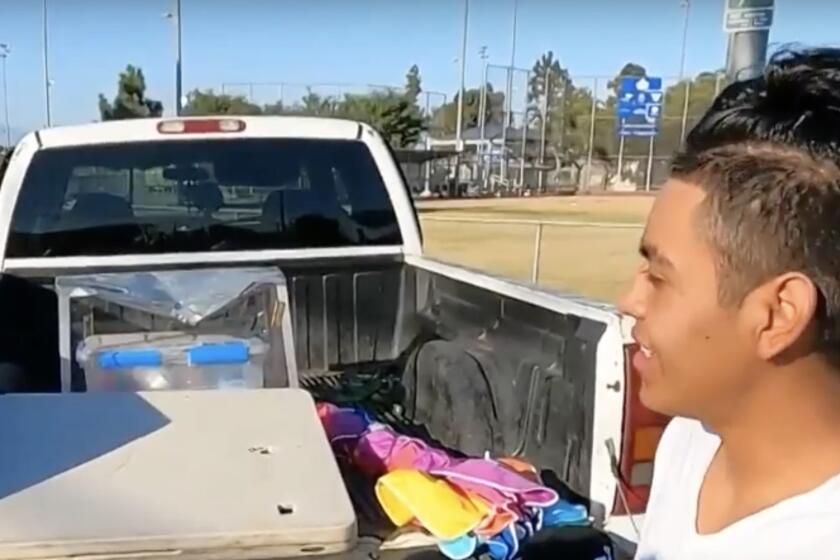L.A. County judge warns of effects of big budget cuts
Los Angeles County Superior Court Presiding Judge Charles “Tim” McCoy is warning of dire things to come should the state’s budget crunch continue to take a toll on the nation’s largest trial court system.
In recent weeks he has met with attorneys and court officials around the county, telling them the once-a-month closures and furloughs that began in July may be just the tip of the iceberg. Over the next four years, he says, as many as 1,800 jobs may be eliminated and up to 180 courtrooms may have to be permanently shuttered. The court’s capacity may be drastically reduced, tripling or quadrupling the pace of some cases moving through the system.
McCoy has given presentations to about a dozen law firms and several attorneys’ associations. He’s sounded the alarm to the district attorney and public defender. On Tuesday, he met with judges in the downtown civil courthouse to describe the bleak outlook.
This year, the state’s trial courts have seen their funds slashed by more than $200 million amid Sacramento’s hacking its way to a balanced budget. Los Angeles County, which has a quarter to a third of the state’s trial courts, bore a chunk of the cuts.
If this year’s cuts continue for the next four years, McCoy said he may be forced to cut staff and close courtrooms across family, juvenile, civil and criminal courts to make ends meet. He said he is looking at plans to shut down as many as 14 of the county’s 43 family law courtrooms and 14 of 49 juvenile courtrooms. The cuts may lead to eight courthouses no longer handling family law and two courthouses closing their juvenile operations.
Domestic violence victims may have to travel farther away to file for restraining orders against their abusers, and backlogs may start piling up on dependency matters that involve vulnerable children in foster care, McCoy said.
The hardest hit would be the court’s civil operations, which may be whittled down to less than half of what they are today, with 111 courtrooms closing over three years. In the case of downtown’s Stanley Mosk courthouse, cutting capacity by half would mean a tripling of caseloads for judges, and people having to wait nearly four years for their cases to go to trial, McCoy said.
And in the worst case, about 43 of about 300 criminal courtrooms could be closed.
As a way out of the budget disaster, McCoy has been arguing that the state use a revenue bond passed for repairing and building courthouses, a proposal that has stirred controversy within the judiciary.
Many court officials around California are opposed because they believe their facilities are in absolute need of repair or replacement, said William C. Vickrey, administrative director of the California courts.
Vickrey said that though all options are on the table, “that is, in my opinion, not the first proposal we ought to be making.”
Vickrey noted that a majority of courthouses throughout the state have severe security problems, safety issues and seismic risk problems.
McCoy said that although he recognizes the need, he was being backed into a corner and given a “Hobson’s choice.”
Steven Glickman, a plaintiff’s lawyer and board member of the Consumer Attorneys Assn. of Los Angeles, said McCoy’s outlook at a meeting last month dampened the mood among the roughly 200 plaintiff’s and defense lawyers in the room.
“It was like throwing cold water on your face,” Glickman said.
--
More to Read
Sign up for Essential California
The most important California stories and recommendations in your inbox every morning.
You may occasionally receive promotional content from the Los Angeles Times.











